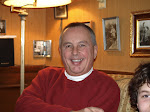 |
| Dr. Strangelove? |
Well, OK, dude. What brought on that comment? Probably an afternoon of listening to those gob-shites Glenn Beck and Rush Limbaugh on WTVN squawk radio. In last week's Democratic debate, Kissinger's name improbably came up. Bernie called him "destructive" and "not my kind of guy," while Hillary maintained he was incredibly useful in U.S.-China relations. I do not listen to WTVN radio but my friend does, and you can bet that Beck and Limbaugh were ripping Bernie and defending Alte Herr Kissinger.
(And honestly, if Kissinger's so damn smart, how come he never lost the Bavarian accent?)
From 1969 through 1977, Heinz Alfred "Henry" Kissinger served as National Security Adviser and Secretary of State under Presidents Nixon and Ford. He's known as the leading practitioner/proponent of realpolitik, a goal-oriented theory which elevates short-term national interests above broader principles and standards. Realpolitik is closely associated with nationalism, and in practice has too often led to an "ends justify the means" mentality. Elected governments are overthrown, "friendly" authoritarian regimes are installed and propped up, and abuses are tolerated.
On the job, Kissinger injected the U.S. into the affairs of Cambodia, Laos, Chile, Argentina, East Timor, Bangladesh, and other "unstable" countries. He oversaw a clandestine "diplomacy" wherein civilian populations were bombed into oblivion, certain politicians, journalists, soldiers and clergymen "disappeared" forever, and whatever fallout resulted was just insignificant fluff, the cost of doing business.
"The illegal we do immediately. The unconstitutional takes a little longer." -- Henry Kissinger, 1975.
Kissinger has been criminally indicted by courts in France, Spain, Argentina and Uruguay.
In his book The Trial of Henry Kissinger, the late author Christopher Hitchens wrote "Kissinger should have door shut in his face by every decent person and he should be shamed, ostracized and excluded."
- Yes, Henry Kissinger's detente efforts helped ease tensions with the USSR, although things are still somewhat tense with Russia today.
- Yes, his trips to China helped "normalize" relations, but that new normal eventually led to American corporate profiteering in China and the loss of American jobs.
- Yes, he did negotiate the 1973 cease-fire agreement which ended official U.S. combat operations in Viet Nam. He was awarded the Nobel Peace Prize, America withdrew, but the cease-fire didn't last.
In today's political world, no candidate on either side of the barricade should be rushing to embrace old Henry.
(Check the link for some quotes from Henry the K.)
http://www.alternet.org/world/top-10-most-inhuman-henry-kissinger-quotes

No comments:
Post a Comment